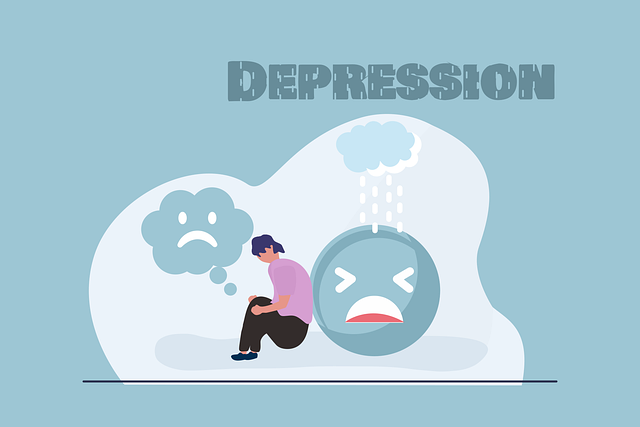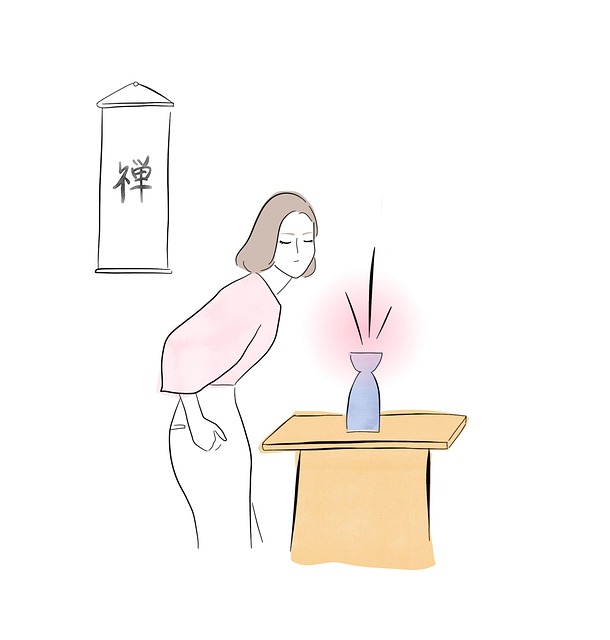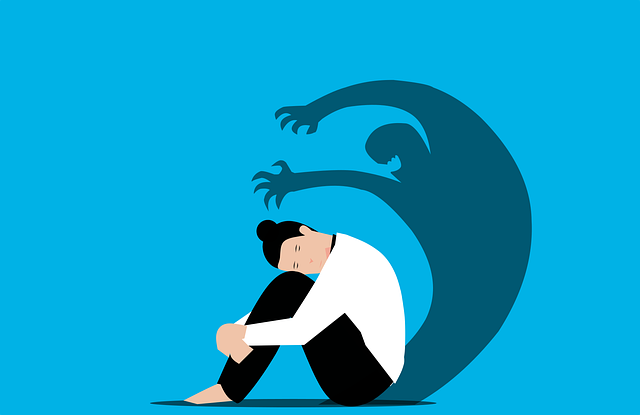Burnout among healthcare providers at Highlands Ranch Chronic Illness Therapy is a significant concern, driven by long hours, complex cases, and high expectations. To combat this, the therapy center prioritizes employee well-being through stress management, positive thinking promotion, flexible schedules, and open communication. Early warning signs of burnout are recognized and addressed, with self-care practices like meditation and regular breaks encouraged. Cultural competency training fosters a diverse and supportive environment. Maintaining work-life balance through clear boundaries and effective task delegation is crucial. Initiatives promoting mindfulness and self-care reduce burnout symptoms and enhance mental health, leading to better patient outcomes and more sustainable working conditions at Highlands Ranch Chronic Illness Therapy.
In the demanding landscape of healthcare, particularly within Highlands Ranch Chronic Illness Therapy, burnout among providers is a pressing issue. This article delves into comprehensive strategies to combat this growing concern. From understanding the complex dynamics of burnout in high-stress environments like Highlands Ranch to identifying subtle signs and risk factors, we explore effective ways to enhance work-life balance. Additionally, we emphasize the vital roles of self-care, mindfulness, and supportive organizational cultures in preventing burnout, fostering sustainable wellness for healthcare professionals.
- Understanding Burnout Among Healthcare Providers in Highlands Ranch Chronic Illness Therapy
- Identifying Risk Factors and Early Warning Signs of Burnout
- Strategies to Enhance Work-Life Balance for Healthcare Professionals
- The Role of Self-Care and Mindfulness Practices in Burnout Prevention
- Creating a Supportive Environment: Team Collaboration and Organizational Culture
Understanding Burnout Among Healthcare Providers in Highlands Ranch Chronic Illness Therapy

Burnout among healthcare providers is a growing concern, especially in specialized fields like Highlands Ranch Chronic Illness Therapy. This phenomenon goes beyond mere job dissatisfaction; it encompasses emotional exhaustion, depersonalization, and reduced personal accomplishment. In the demanding landscape of chronic illness management, where providers often face long hours, complex patient cases, and high expectations, burnout risk increases significantly.
Highlands Ranch Chronic Illness Therapy recognizes that preventing burnout is crucial for maintaining a healthy work environment and ensuring optimal patient care. Strategies to combat this issue include promoting mental wellness through stress-management techniques, encouraging positive thinking, and providing opportunities for confidence boosting. Fostering open communication, offering flexible schedules, and recognizing individual well-being as an integral part of professional development are key steps in building a resilient and motivated healthcare team.
Identifying Risk Factors and Early Warning Signs of Burnout

Burnout prevention starts with recognizing the subtle signs and risk factors that signal a healthcare provider’s well-being is declining. High stress workloads, long hours, and emotional demands inherent in Highlands Ranch chronic illness therapy can take a significant toll over time. Early warning signs include increased irritability or fatigue, detachment from patients, decreased productivity, and a general sense of cynicism towards work. These indicators should not be ignored as they often represent a provider’s growing disengagement and potential for burnout.
Self-care practices are vital to mitigating these risks. Healthcare providers must prioritize self-esteem improvement and incorporate regular breaks, stress management techniques, and meaningful social connections into their routines. Additionally, healthcare provider cultural competency training can foster a sense of belonging and resilience by promoting a supportive work environment and improving relationships with diverse patient populations.
Strategies to Enhance Work-Life Balance for Healthcare Professionals

Maintaining a healthy work-life balance is essential for healthcare professionals to prevent burnout and promote overall mental wellness. In Highlands Ranch Chronic Illness Therapy, strategies like setting clear boundaries between professional and personal life can significantly help. This includes setting specific work hours and adhering to them, as well as prioritizing time off for rest and relaxation. Additionally, delegating tasks effectively within the team and seeking support from colleagues or supervisors when workload becomes overwhelming can alleviate pressure and restore balance.
Conflict resolution techniques play a crucial role in fostering a harmonious work environment. Healthcare providers should be equipped with skills to navigate professional challenges constructively, ensuring emotional regulation during stressful situations. Encouraging open communication among staff members helps resolve conflicts promptly, creating a more positive and collaborative atmosphere. These efforts contribute to a healthier mental state, enhancing the provider’s ability to care for patients effectively while maintaining personal well-being.
The Role of Self-Care and Mindfulness Practices in Burnout Prevention

In the relentless pace of healthcare delivery, burnout among providers is a growing concern. The role of self-care and mindfulness practices cannot be overstated in preventing this epidemic. Healthcare professionals who prioritize their well-being are better equipped to manage stress and maintain resilience against the demands of their work, particularly when dealing with complex cases like those seen in Highlands Ranch Chronic Illness Therapy settings. Regular engagement in activities such as meditation, deep breathing exercises, yoga, or other mindfulness techniques can significantly enhance mental health and reduce symptoms of burnout.
Moreover, incorporating self-care into daily routines allows healthcare providers to foster a healthier work-life balance. This is crucial considering the constant pressure to deliver quality care amidst limited resources. Stress Management Workshops Organization initiatives aimed at promoting these practices among medical personnel are gaining traction as part of broader Mental Health Policy Analysis and Advocacy efforts. By encouraging professionals to tend to their own mental health, healthcare institutions can ultimately enhance patient outcomes and create a more sustainable working environment.
Creating a Supportive Environment: Team Collaboration and Organizational Culture

In the highland of healthcare provision, particularly in areas like Highlands Ranch Chronic Illness Therapy, fostering a supportive environment is paramount to prevent burnout among medical professionals. Team collaboration emerges as a robust strategy, where interdisciplinary partnerships encourage knowledge sharing and emotional support. An organizational culture that prioritizes open communication, mutual respect, and recognition fosters a sense of belonging, enhancing job satisfaction and resilience against stress.
Integrating practices like self-care routine development for better mental health, mind over matter principles, and compassion cultivation can significantly fortify the healthcare environment. These approaches not only promote individual well-being but also enhance patient care by cultivating professionals who are empathetic, resilient, and adept at managing their own mental health—a crucial aspect of preventing burnout in high-pressure settings like Highlands Ranch Chronic Illness Therapy.
In the context of Highlands Ranch Chronic Illness Therapy, addressing healthcare provider burnout is paramount for maintaining a robust and compassionate therapeutic environment. By understanding the unique challenges faced by these professionals, implementing targeted strategies such as enhancing work-life balance, fostering self-care practices, and cultivating a supportive organizational culture, we can mitigate burnout risks effectively. These proactive measures not only benefit individual therapists but also contribute to improved patient outcomes and a more sustainable healthcare system in Highlands Ranch and beyond.














